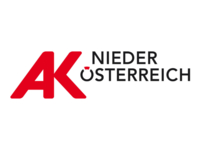Extended Reality (XR) methods for trainings in home-based care
Background
The care of people is taking up more and more space in social life. The vast majority of persons in need of care are looked after in their home environment, while comparably few people stay at nursing homes – and the wish to “grow old at home” contributes to this gap becoming wider. This means that the bulk of care services is performed by laypersons or mobile providers. Current statistics show that approximately 15,000 professionals and 950,000 laypersons provide home-based care (the latter for their relatives). In other words, there is a large number of people who would profit from education and training in the field of nursing.
Project Content
At the moment, there are only a few training programmes that are tailored to the needs of care-giving relatives. Moreover, these few available trainings tend to be time-consuming and are held in training facilities that are often hard to reach. Finding third-party caregivers for the duration of the training is another aggravating factor. Consequently, both care-giving relatives and professionals in home-care nursing would benefit from low-threshold trainings they can carry out in their own environment. One option to improve the situation for those affected is pursued in this project: XR (Extended Reality) training environments (computer-generated, virtual environments). They allow trainings to be performed in the home environment and represent a promising alternative to existing educational offers.
Goals
The project immtaCARE expands the education and training possibilities in extramural (home-based) care and builds a bridge between professionals and care-giving laypersons. Through practising easy to perform, and regularly used movements it not only improves one’s skills but also saves time that can be used for more individual nursing care. It also reduces stress in everyday nursing and strengthens resilience.The training programmes are made easily accessible and characterised by short training units with a high number of repetitions. To achieve this, the project relies on XR-supported methods of knowledge transfer and seeks answers to the following research questions:
- Which skills do nursing relatives and experts of home-based nursing need regularly in their everyday lives and what are the most common mistakes they make?
- Which of these skills can be practised with the help of an XR environment?
- What is the expected training effort for users to carry out a certain activity correctly?
- How do different user groups come to terms with the XR training system?
Methods
Workshops, interviews, and standardised surveys involving multiple stakeholders (professionals, care-giving relatives, and experts) are carried out. Based on the findings, two nursing skills that both user groups are frequently confronted with will be realised in an XR environment. In order to adjust the implementation as closely as possible to the requirements of future users, the project pursues a user-centred design approach (where the focus is on users’ needs). Furthermore, the implementation is oriented towards learning objectives and based on the latest scientific findings as well as current guidelines concerning human-computer interaction (HCI). The training’s efficiency is measured, and the users’ acceptance of the method ascertained in an evaluation study.
Results
The end result of the project immtaCARE is an easily accessible and low-threshold training offer for care-giving relatives and professional nurses in home-based care. The training is carried out using an XR system (on a rental basis). To reduce users’ inhibitions and facilitate its use scenario detailed descriptions for applying the XR environments are provided. The easy and inexpensive access to the training environment and the information materials are enabled through a collaboration between the city library of St. Pölten, the home-based care providers, and other partners.
Additional information about the project can be found here on the sponsor's pages.
You want to know more? Feel free to ask!
Lecturer
Senior Researcher Institute of Health Sciences
Department of Health Sciences
Bernhard Schmatzberger (ASB)
- Interessengemeinschaft pflegender Angehöriger (End-User)
- Caritas St. Pölten (End-User)
- Arbeiter-Samariter-Bund (End-User)



